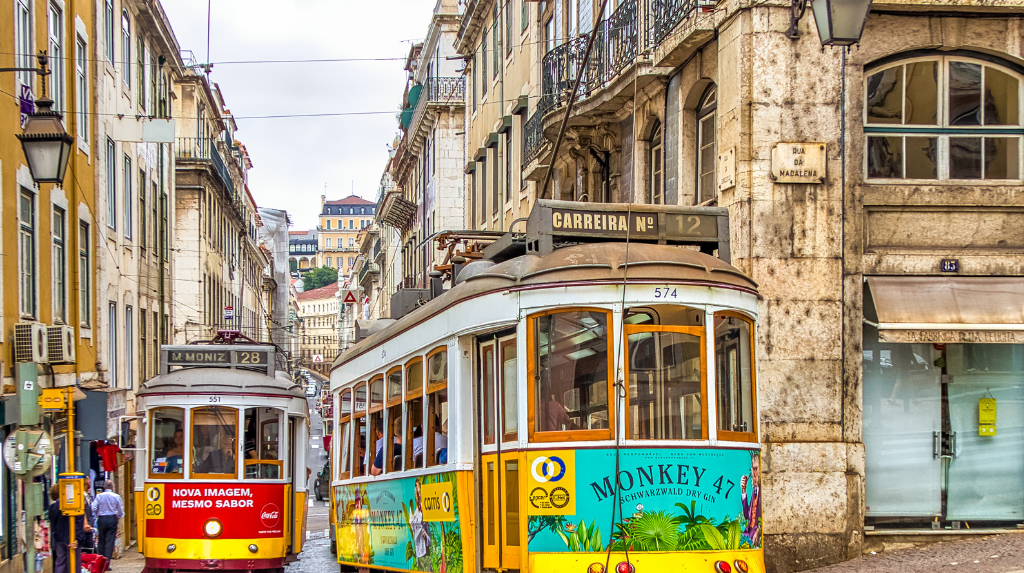When considering a trip to Portugal, a common question arises: “Is it easy to get a Portugal visa?” This question is particularly pertinent for travellers who need to apply for a visa before entering the Schengen area. In this article, we will explore various aspects of the Portugal visa application process, focusing on its difficulty level, requirements, and tips to enhance the chances of approval.
Portugal Visas
Portugal, a member of the European Union and part of the Schengen Agreement, attracts visitors for its rich culture, beautiful landscapes, and pleasant climate. Depending on your nationality, you may or may not require a visa to enter Portugal. For those who do, Portugal offers several visa types, including tourist visas, business visas, family reunion visas, study visas, and work visas.
Factors Influencing the Ease of Getting a Portugal Visa
The ease of obtaining a Portugal visa depends on various factors:
Nationality and Visa Agreements
The applicant’s nationality is a primary factor. Citizens of countries that have visa liberalisation agreements with the European Union typically find it easier to obtain a Portugal visa. These agreements often mean fewer documentation requirements and a more streamlined process.
Purpose of Visit
The purpose of the visit significantly impacts the ease of obtaining a visa. Tourist visas, generally for short stays and leisure activities, might be easier to secure compared to work or study visas. The latter categories often require more extensive documentation, such as proof of employment or university enrollment.
Documentation and Preparation
A well-prepared visa application is crucial. This includes accurately completing the application form and providing all necessary supporting documents. Incomplete or incorrect applications are more likely to be delayed or denied. Proper preparation also involves understanding all the requirements specific to the type of visa you are applying for.
Personal and Financial Circumstances
The consulate will closely examine the applicant’s financial stability and ties to their home country. Demonstrating strong financial means to support the stay in Portugal and strong ties to the home country, like employment or family, can be favourable. The consulate assesses these factors to determine the likelihood of the applicant returning to their home country after their visit to Portugal.
Travel History
An applicant’s travel history can also play a role. A history of previous international travel, especially to Schengen countries, without any visa issues can positively influence the application. It indicates the applicant’s compliance with visa regulations in the past.
Processing Times and Consulate Workload
The time of year and the specific consulate’s workload can also affect the ease of obtaining a visa. Busy periods, like holiday seasons, might lead to longer processing times.
Relationship with Schengen Area Countries
Portugal, being a part of the Schengen Area, follows its common visa policy. Applicants who have previously been issued Schengen visas and have a clean travel record within the Schengen zone might find it easier to get a Portugal visa.
Health and Security Concerns
Current global health concerns, such as pandemics, and security issues can also affect visa policies and the ease of obtaining a visa.
The Application Process
The process of applying for a Portugal visa involves several steps:
- Determine the Type of Visa: Choose the right visa based on your travel purpose.
- Collect Required Documents: Prepare documents such as a valid passport, proof of accommodation, return flight tickets, travel insurance, and financial statements.
- Fill Out the Application Form: Complete the Schengen visa application form accurately.
- Schedule an Appointment: Book an appointment at the nearest Portuguese consulate or visa application centre.
- Attend the Visa Interview: Submit your documents and attend the interview.
- Wait for Processing: After submission, the application will be processed, which usually takes up to 15 days. This period can extend during peak travel seasons or for complex cases.
Tips for a Successful Visa Application
- Apply Early: Submit your application well in advance of your planned travel date.
- Ensure Document Accuracy: Double-check all documents for completeness and accuracy.
- Provide Proof of Sufficient Funds: Show that you have enough funds to cover your stay in Portugal.
- Show Ties to Home Country: Evidence of employment, family, or property can help demonstrate your intent to return.
- Travel Insurance: Obtain travel insurance that covers the entire Schengen area.
- Prepare for the Interview: Be honest and clear about your travel plans and reasons for visiting Portugal.
Challenges in the Visa Process
While many find the process straightforward, some applicants face challenges:
- Bureaucratic Hurdles: Navigating the paperwork and requirements can be daunting.
- Appointment Availability: Getting an appointment at consulates can be difficult during high-demand periods.
- Processing Delays: Occasionally, applications might face delays due to high volume or individual issues.
In conclusion, the question of whether it is easy to get a Portugal visa does not have a one-size-fits-all answer. It varies based on individual circumstances, preparation, and adherence to requirements. By understanding the process, preparing thoroughly, and applying well in advance, applicants can enhance their chances of a successful visa application. With careful planning and attention to detail, the dream of exploring Portugal’s charm can become a reality.
Do you need assistance with your Portuguese visa application?
Contact our team of skilled immigration lawyers to discuss your visa and immigration needs.Call us on +234 812 5505 986 or WhatsApp us at +234 818 1547 085 for immediate assistance with your situation. We are available to assist you in person, over the phone, or online.





